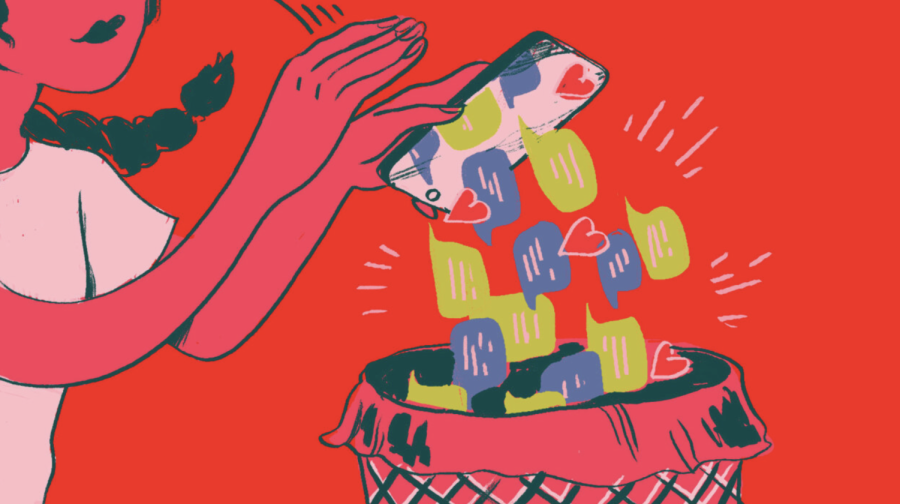The lasting impact of gender stereotypes in dating
November 4, 2022
Society has a strange way of holding onto bad habits. One hundred and two years following the 19th Amendment, 59 years post-Equal Pay Act and seven years of androgynous toy aisles later, American society continues to be haunted by the threat of gender-oriented stereotypes. Despite social efforts to uproot the misconceptions fueling gender inequality and discrimination within public, professional and private settings: the ageless debate regarding gender roles in dating remains prevalent, and whether they are always harmful.
Before anyone can attempt to identify the presence of gender roles in dating, it is important to understand what gender stereotypes are and what they aren’t. The United Nations Office for Human Rights (OHCHR) provides this definition of gender stereotypes for which this article will rely upon: “A gender stereotype is a generalized view or preconception about attributes or characteristics, or the roles that are ought to be possessed by or performed by women and men.”
In other words, gender stereotypes are preconceived ideas on what behaviors are appropriate for an individual based on no factors outside their gender. Gender roles refer specifically to these assigned behaviors. Gender stereotypes are not inherently misogynistic, prejudiced against women, nor misandrist or prejudiced against men. However, gender stereotypes can be the tipping point of a very isolating and dangerous slope, as they can also become transphobic if a trans individual’s identity is viewed as non-conforming.
In romantic relationships, gender stereotypes can reveal themselves in a variety of ways, some more explicit than others. An example of such stereotypes would be the misconception that women are better suited to handle domestic matters while their male partners behave as a provider and protector. Gender roles can also play off one another further fueling the misconceptions. A woman who decides to work from home may feel pressured into assuming sole responsibility for home maintenance, and a man may refrain from emotional vulnerability due to the stereotype that men should remain stoic. Hyper-femininity and masculinity, the exaggeration of one’s gendered qualities, can both be seen as implicit individual manifestations of gender stereotypes.
Gender stereotypes can be extremely harmful to an individual’s self-image. This can be especially alarming when viewed through the lens of dating. Gender roles pose the threat of stunting someone’s comfort with vulnerability, and other times influence one to disregard their partner’s emotions. It is important to remain mindful of the ways we perpetuate gender stereotypes through our own behavior and how we allow them to cloud our judgment of others.
Yet despite everything society understands regarding gender stereotypes and their implications, we can still identify gender roles in some relationships today. This may be because the behaviors perceived to be indications of gender stereotyping within some relationships is consensual. This change of perspective is what inspired the question of whether gender roles in relationships are always negative. In a 2016 study, the Pew Research Center concluded that 18 percent of American parents fulfilled the position of full-time caregiver including 7 percent of men and 27 percent of women. Although these statistics still show that more women are deciding to stay home compared to their male counterparts, it also reveals the reality that stay-at-home parenting is not exclusive to women. While the idea of a stay-at-home dad directly contradicts gender stereotyping, the idea of a stay-at-home mom can be burdened by the stigma of conforming to gender roles even when it isn’t earned.
Even in my own relationship, some might misinterpret the gender roles we assume as something negative. Three years into my current relationship, I often find myself cleaning up after my male partner. From an outside perspective, someone watching me clean up after him may assume that our relationship subscribes to gender roles, but the reason I occasionally find myself picking up after my partner is due to my desire to organize certain things in a specific manner. Even then I am not in any way responsible for cleaning up after him.
Gender roles in relationships can at times be an indication of a relationship plagued by societal stereotyping; however, the correlation is not always present. It is everyone’s job to remain mindful of the gender stereotypes we perpetuate and may force onto others. Gender roles are never acceptable, as the term implies that they are a product of gender stereotypes. However, it’s also important to remember that not every relationship we perceive as conforming to gender roles is in fact guilty of doing so. The key here, as it is in every aspect of dating, is consent.











